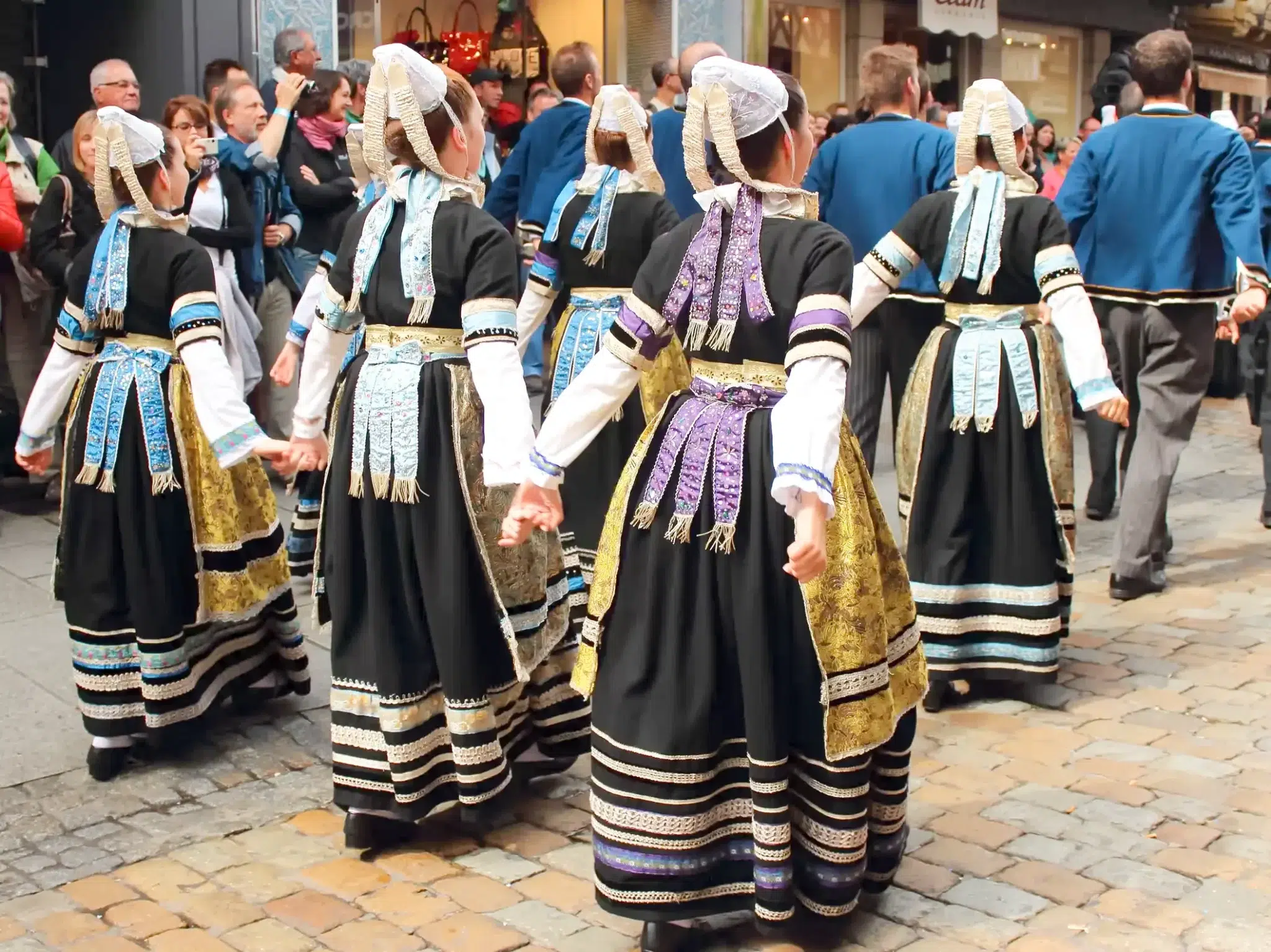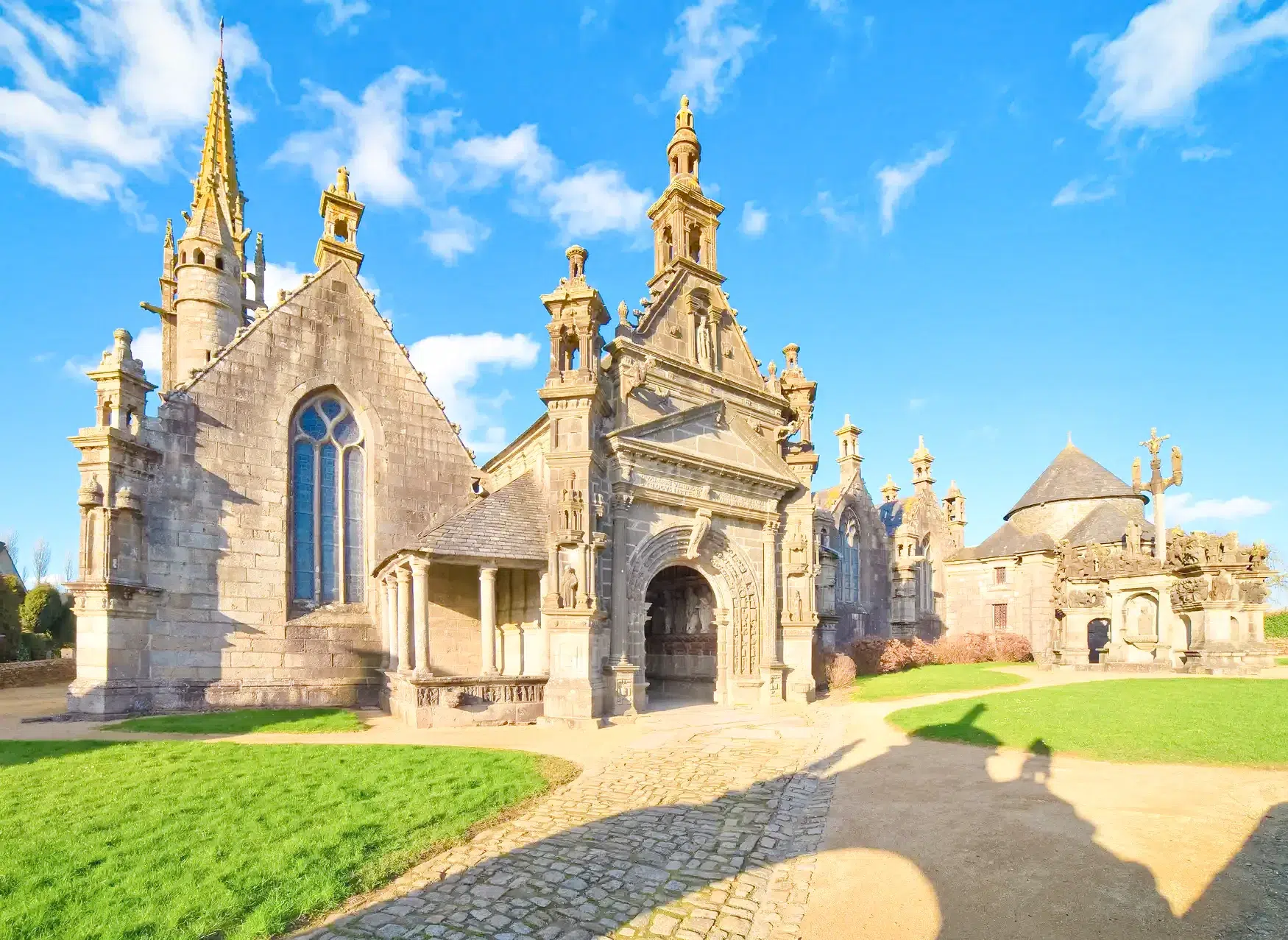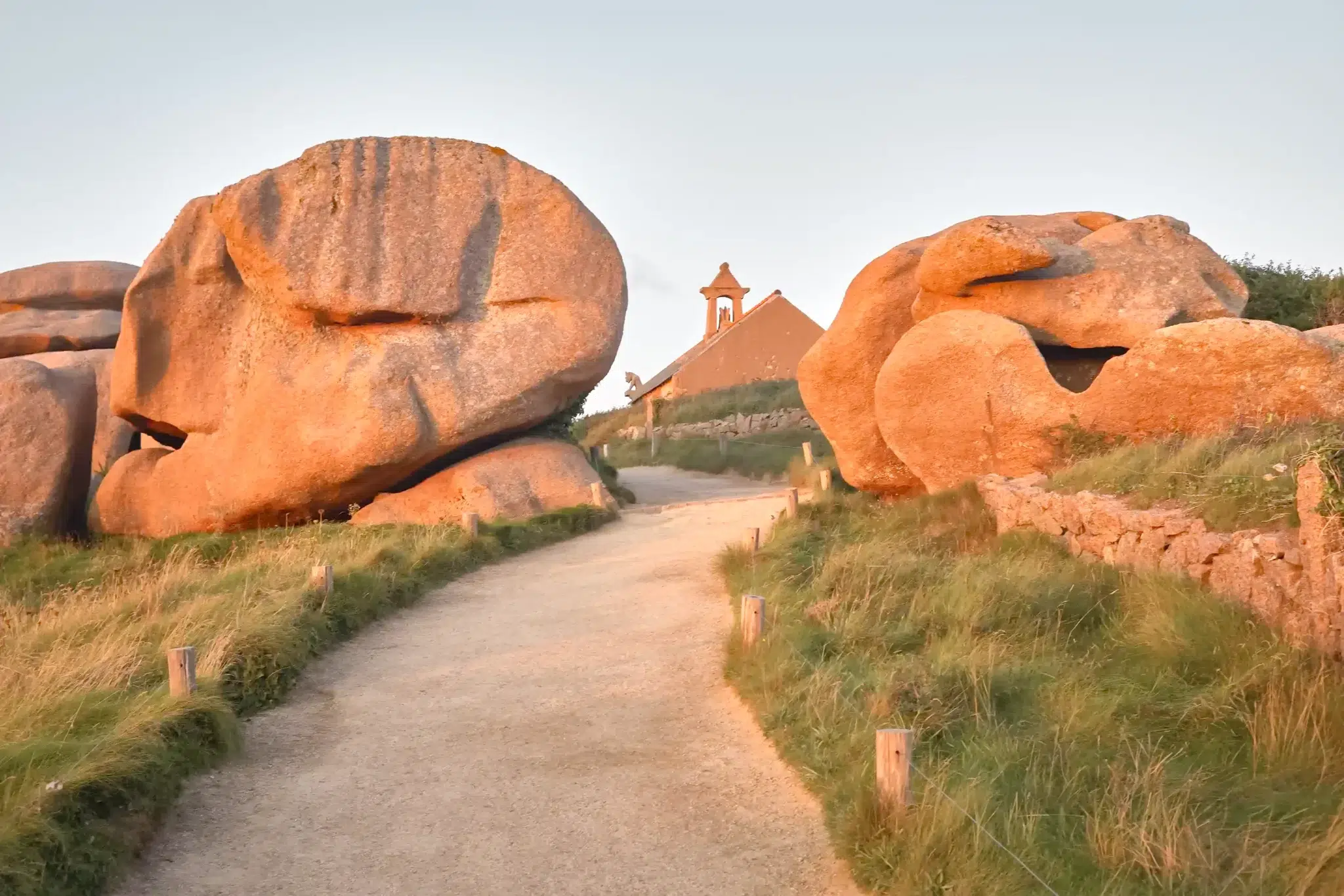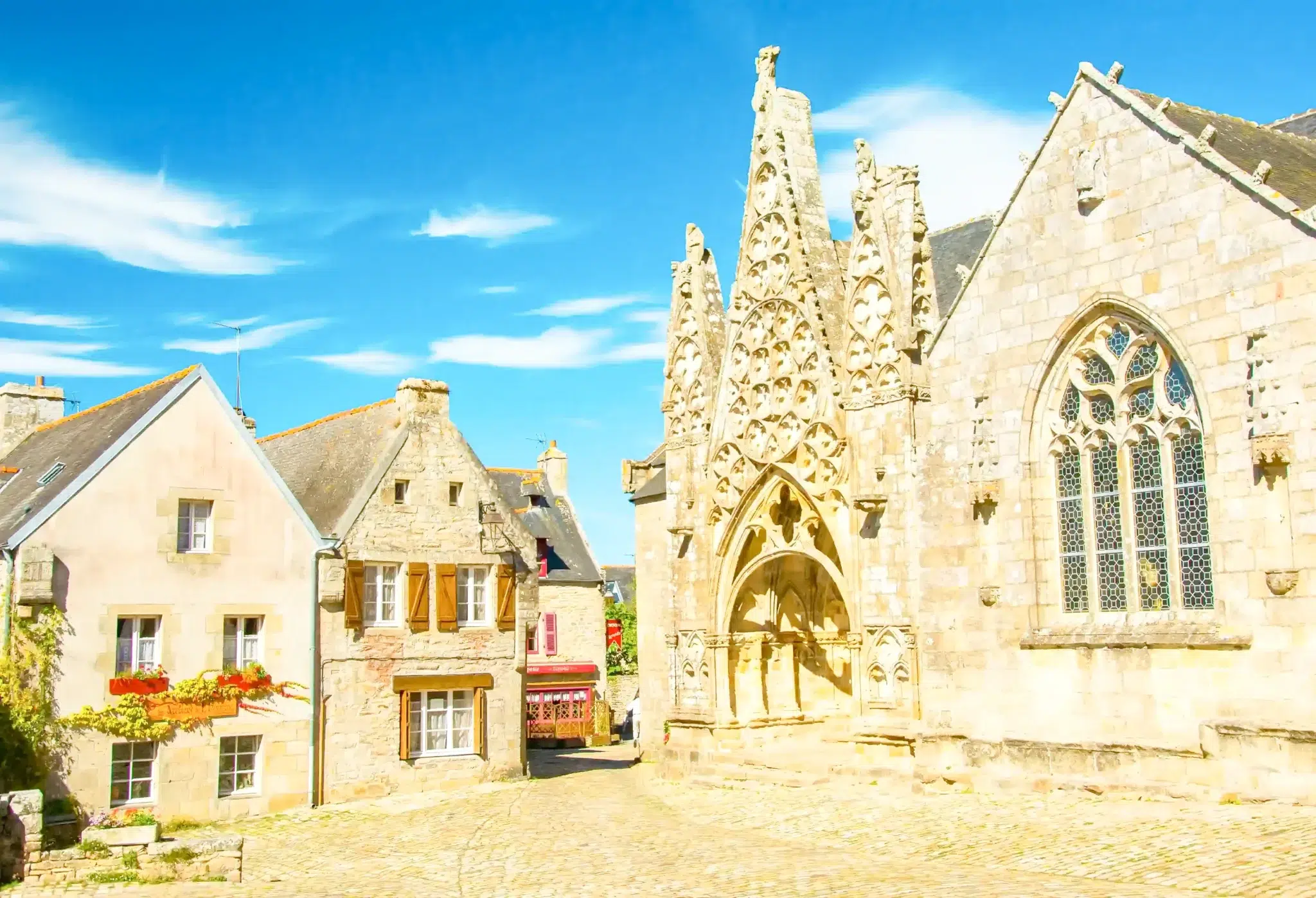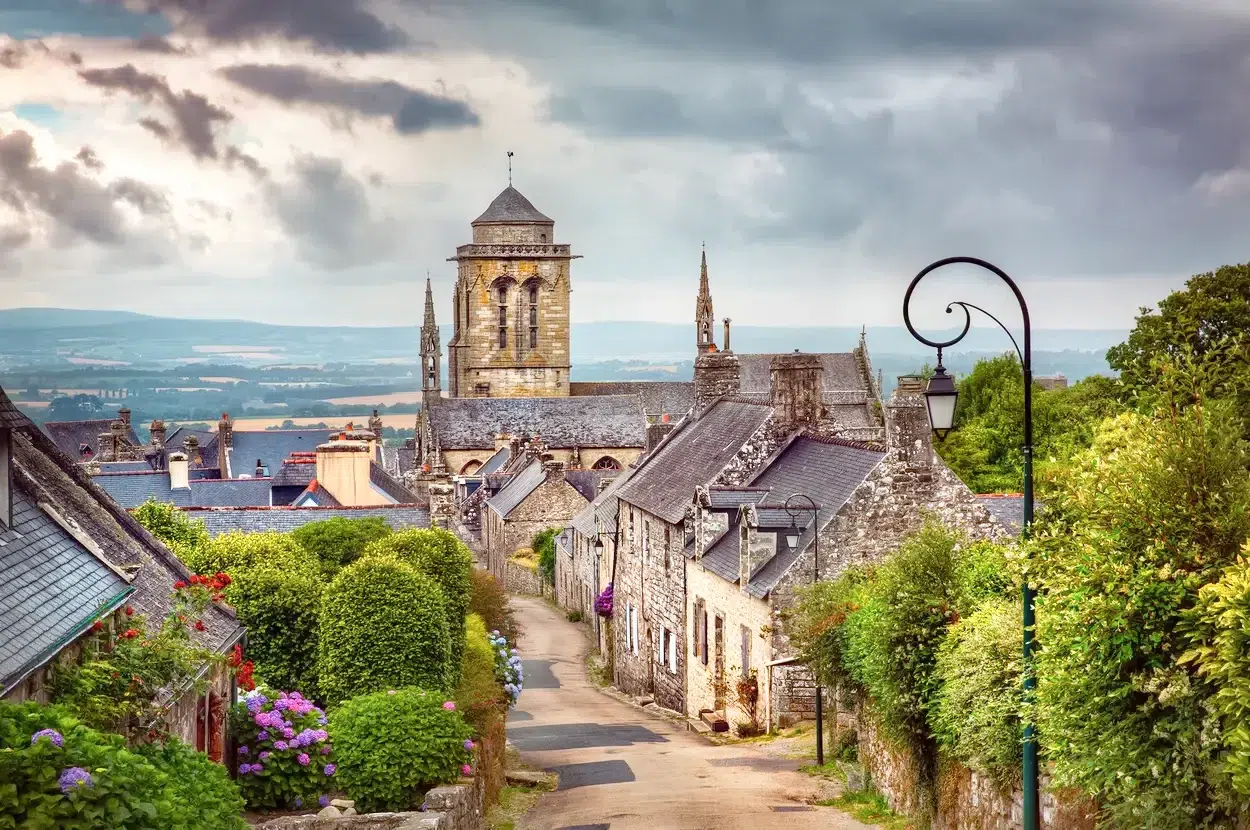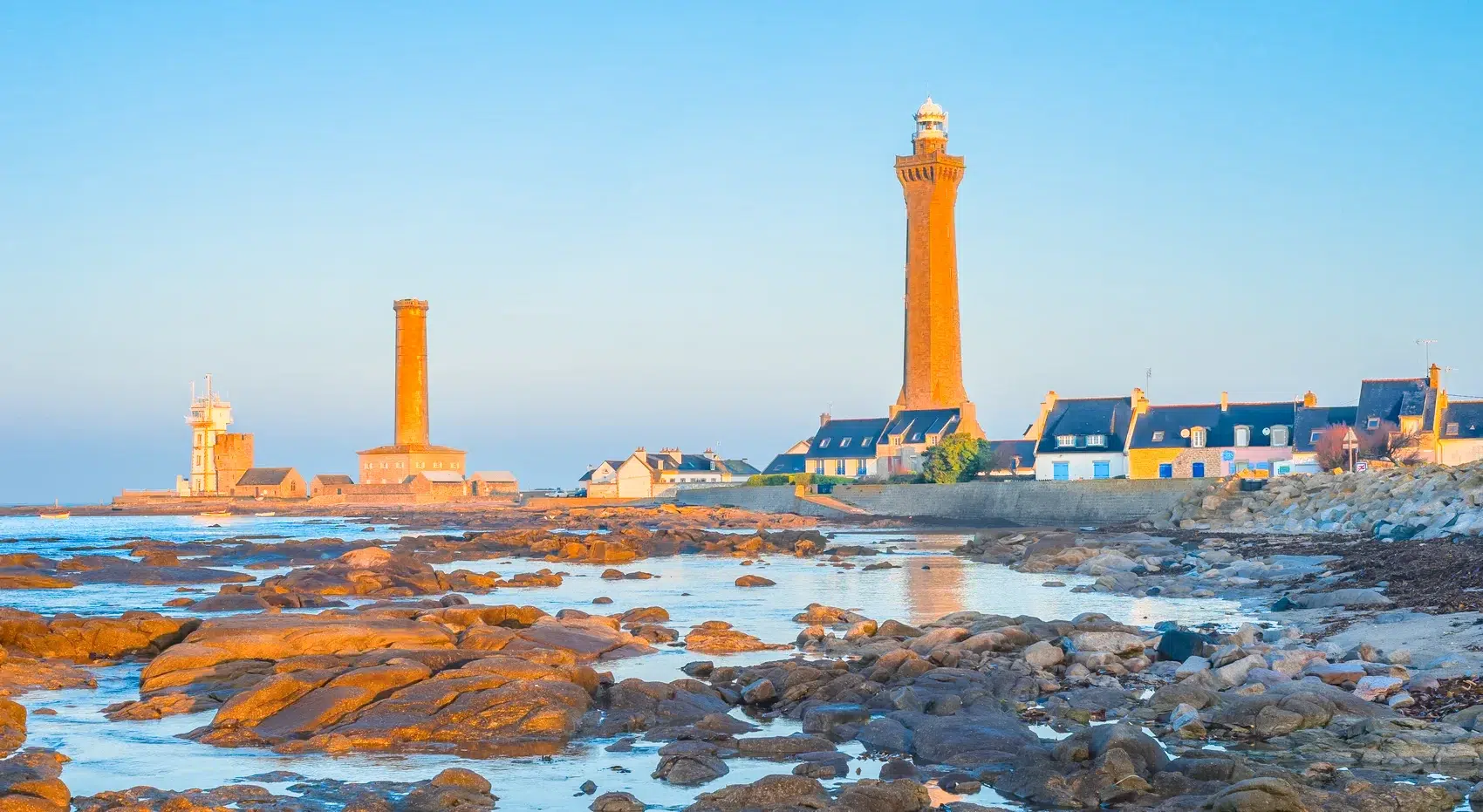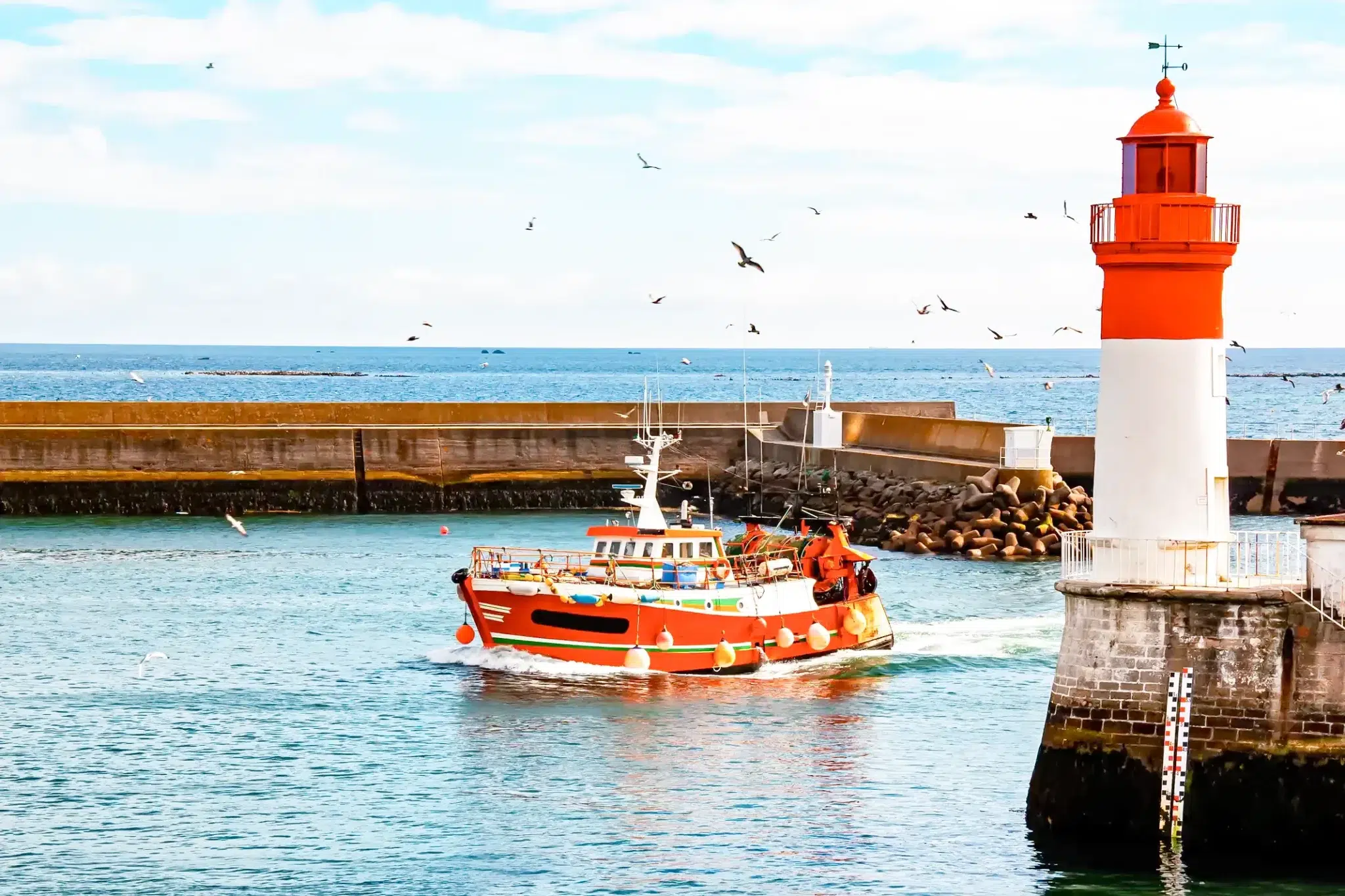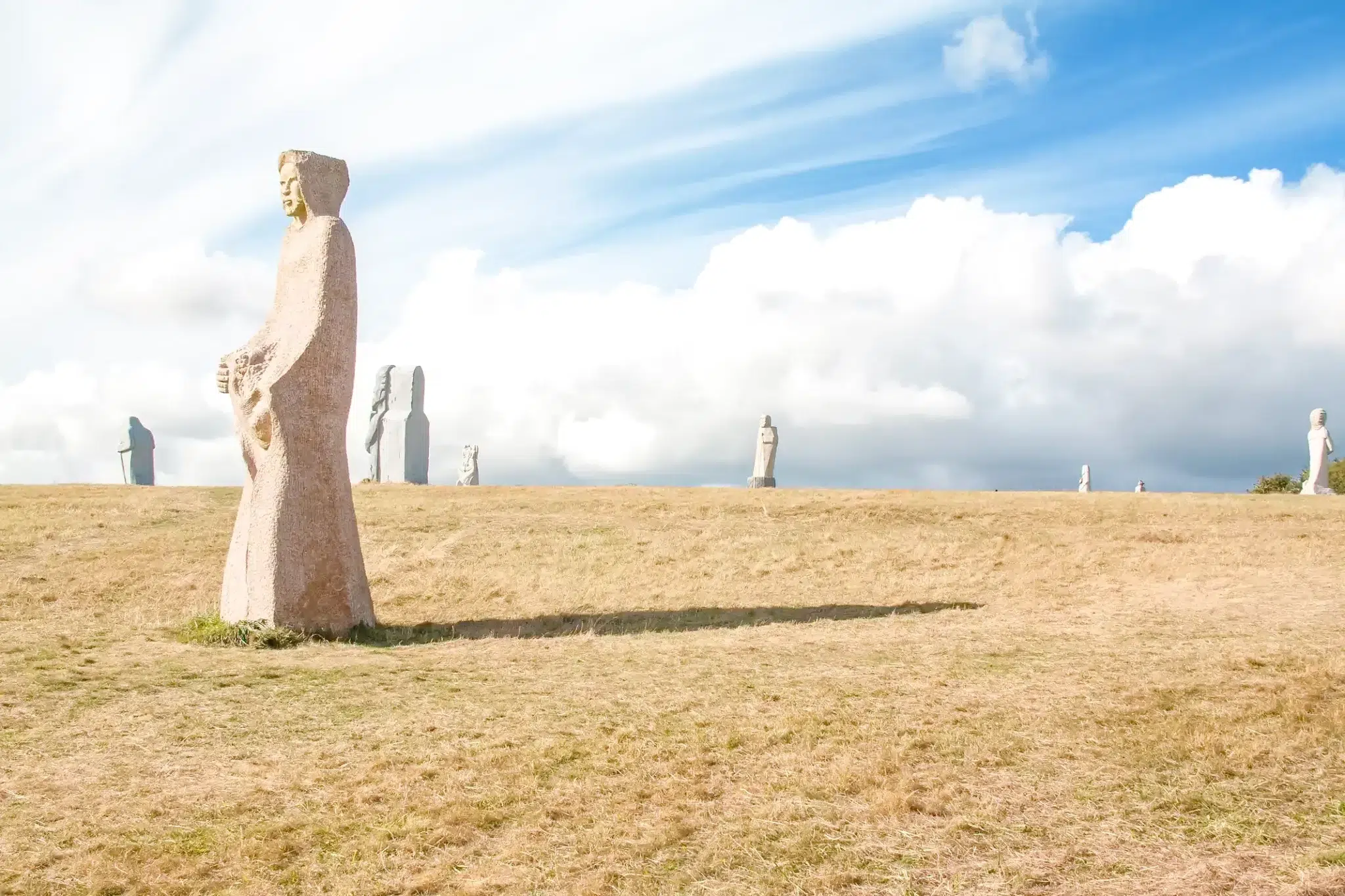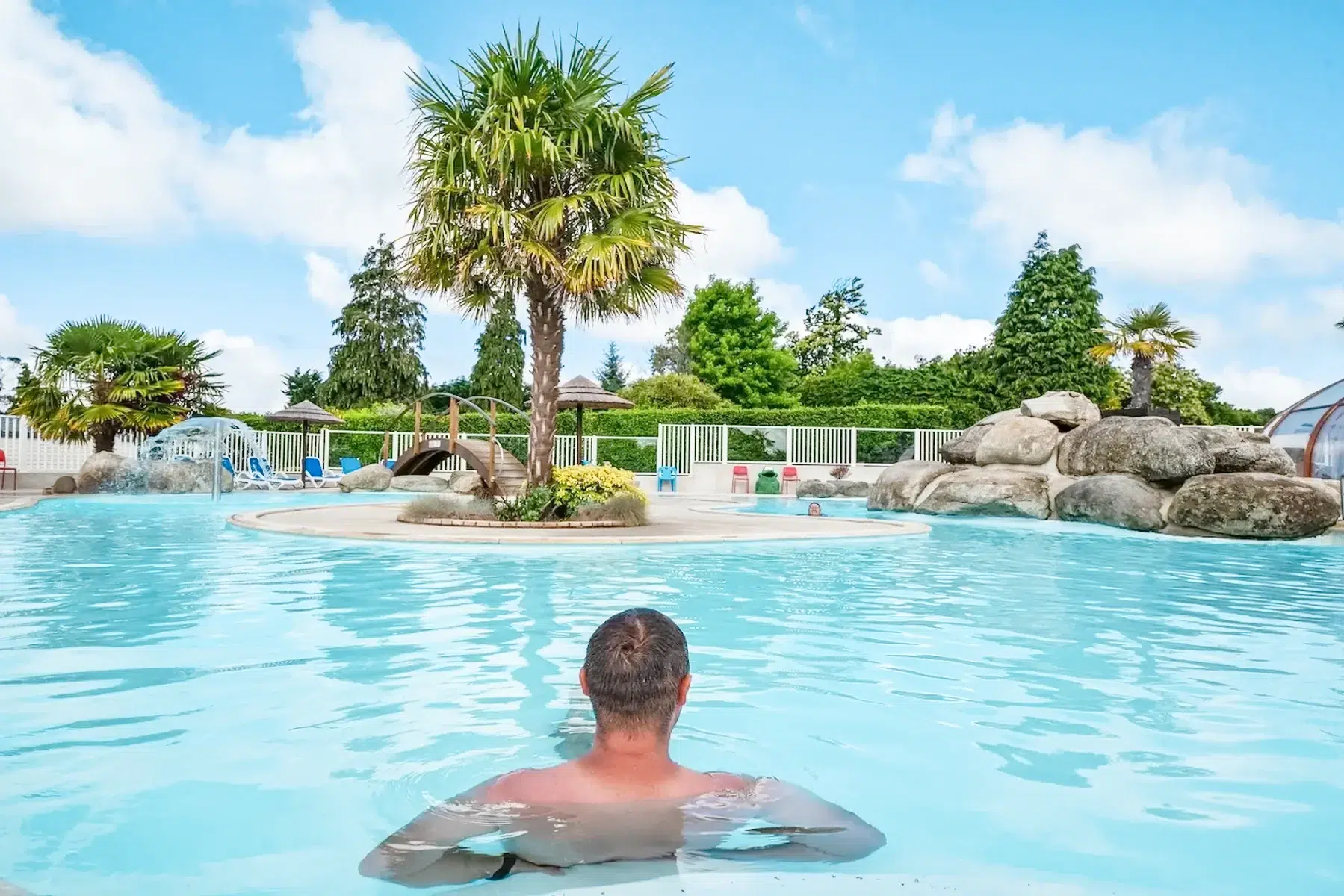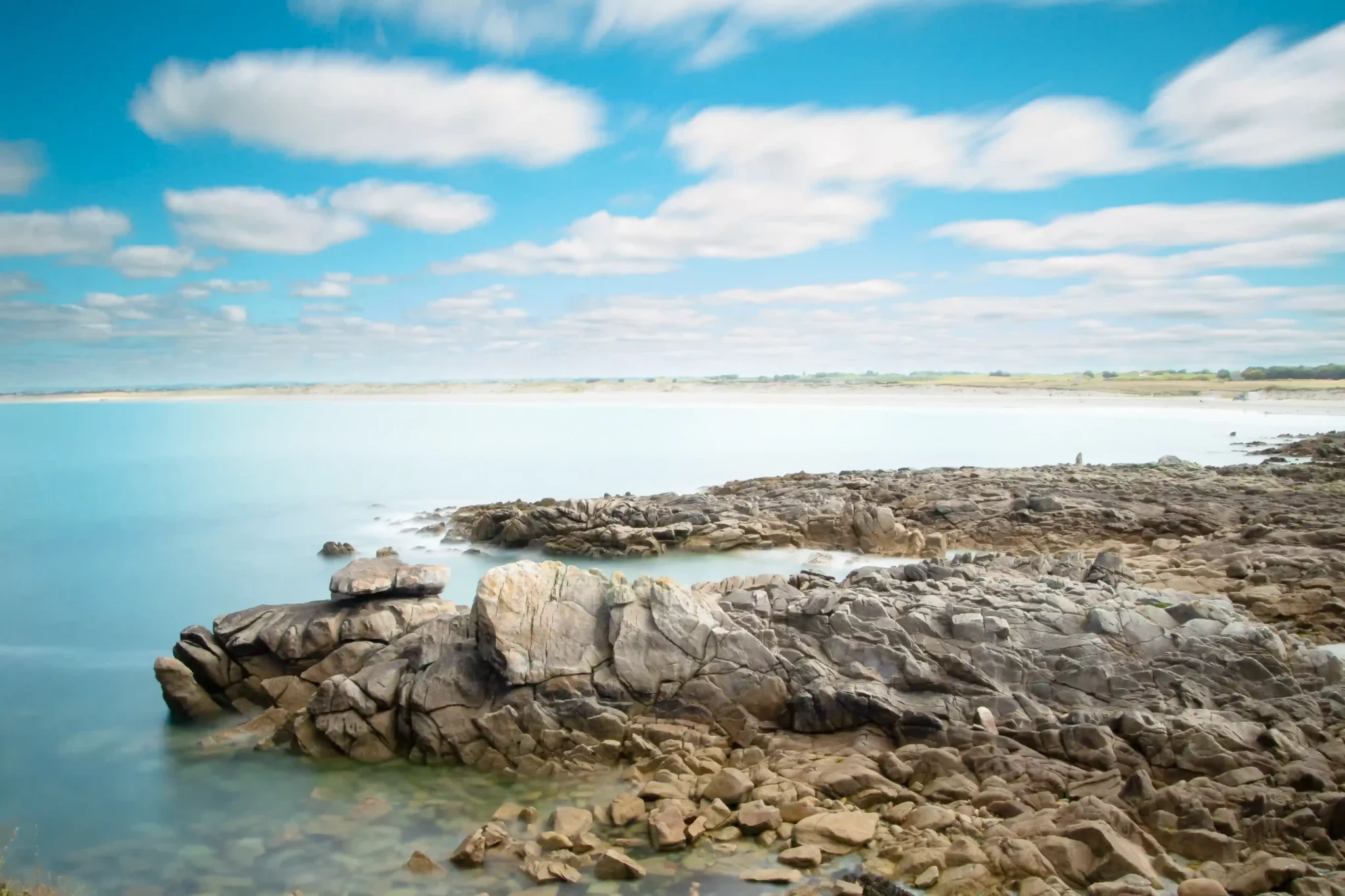Things to see and do near Camping Paradis in South Finistère
Visit the Parish Enclosure
Theparish enclosure is a typically Breton architectural ensemble. Situated in the center of the village, the parish enclosure is an area considered sacred by the Bretons.
The typical enclosure is made up of four inseparable elements: the monumental entrance, the calvary, the ossuary and the church (sometimes surrounded by the cemetery). The existence of parish enclosures is linked to a history: that of Brittany’s economic prosperity in the 16th and 17th centuries.
Various surrounding parish enclosures: Saint Thégonnec, Guimiliau, Lampaul-Guimiliau, Commana, Pleyben, Sizun…

Douarnenez 14 km from Camping Paradis
Douarnenez still retains its reputation as a major sardine port, even if the vagaries of the sardine over time have led to a diversification of what were once seasonal fisheries.
A flourishing fishing port until the late 1970s and early 1980s, it has been in sharp decline ever since. But it’s also a major marina in South Finistère, along with Tréboul and Port-Rhu. This is the town where the Kouign-amann was invented.
Discover Pont-Croix 16 km away
A village at the end of the world!
Pont-Croix, a Cap Sizun commune on the road to the Pointe du Raz in South Finistère, was voted 2nd “French Favourite Village” in 2019, and is also a Petite Cité de Caractère (like Locronan).
Pont-Croix, this village at the end of the world, was built at the bottom of the Goyen estuary, on the heights of a hill, with terraced gardens and steep streets leading to one of the most beautiful buildings in the medieval town. A church, whose architecture has set the standard, surrounded by beautiful residences. The commune has inherited a remarkable natural and architectural heritage that everyone is committed to reviving.

Camping Paradis 22 km from Locronan
Locronan‘simportant architectural heritage, preserved from an early date, has earned the village membership of the “petites cités de caractère” network. Locronan has also been awarded the label “Les plus beaux villages de France” (Most Beautiful Villages of France) by an independent association whose aim is to promote the tourist attractions of small French villages with a rich heritage.
Around the church, the village roofs are veritable works of art. From its heyday, the village has preserved a central cobbled square with a well, the vast Saint-Ronan church and Renaissance granite houses.
Visit Quimper 25 km away
What a pleasure to stroll through the narrow streets of old Quimper! Half-timbered houses and corbels lean towards the evocatively-named alleyways, indicated by the spires of Saint-Corentin Cathedral. Playing leapfrog on the Odet footbridges, your walk continues in a lush green setting.
Quimper’s Musée de la Faïence and Musée Départemental Breton will immerse you in Breton and Cornish culture.

Eckmühl lighthouse 27 km from Camping Paradis
The Eckmühl lighthouse is a maritime lighthouse located on the Pointe de Saint-Pierre in Penmarc’h, South Finistère. It is over 60 metres high. It was inaugurated on October 17, 1897, and takes its name from the title of nobility of the donor who largely financed it. It secures one of France’s most dangerous coastlines, with its numerous reefs.
Discover the world of fishing at Haliotika, 28 km away.
Fishermen’s work, backstage at the fish auction, fish preparation and cooking… At Haliotika, immerse yourself in theworld of today’s fishermen.
This “fishing town” is located in Guilvinec, France’s leading port in terms of the number of sailors, with over 400 men and women on board a hundred or so boats. Every day, they fish for langoustines, monkfish, skate, cod, whiting…
Young and old alike are immersed in the dailylife2 offishermen andsailors, as they follow the journey of the fish “From Sea to Plate” over 800 m² of exhibition space.

La Vallée des Saints 105 km from Camping Paradis
If the Valley of the Saints is a unique place, it’s because it’s at once a historic site, a land of legends and the birthplace ofincredible monumental sculptures. A feudal motte, a 16th-century chapel and statues of Breton saints occupy this rolling Poher landscape.


